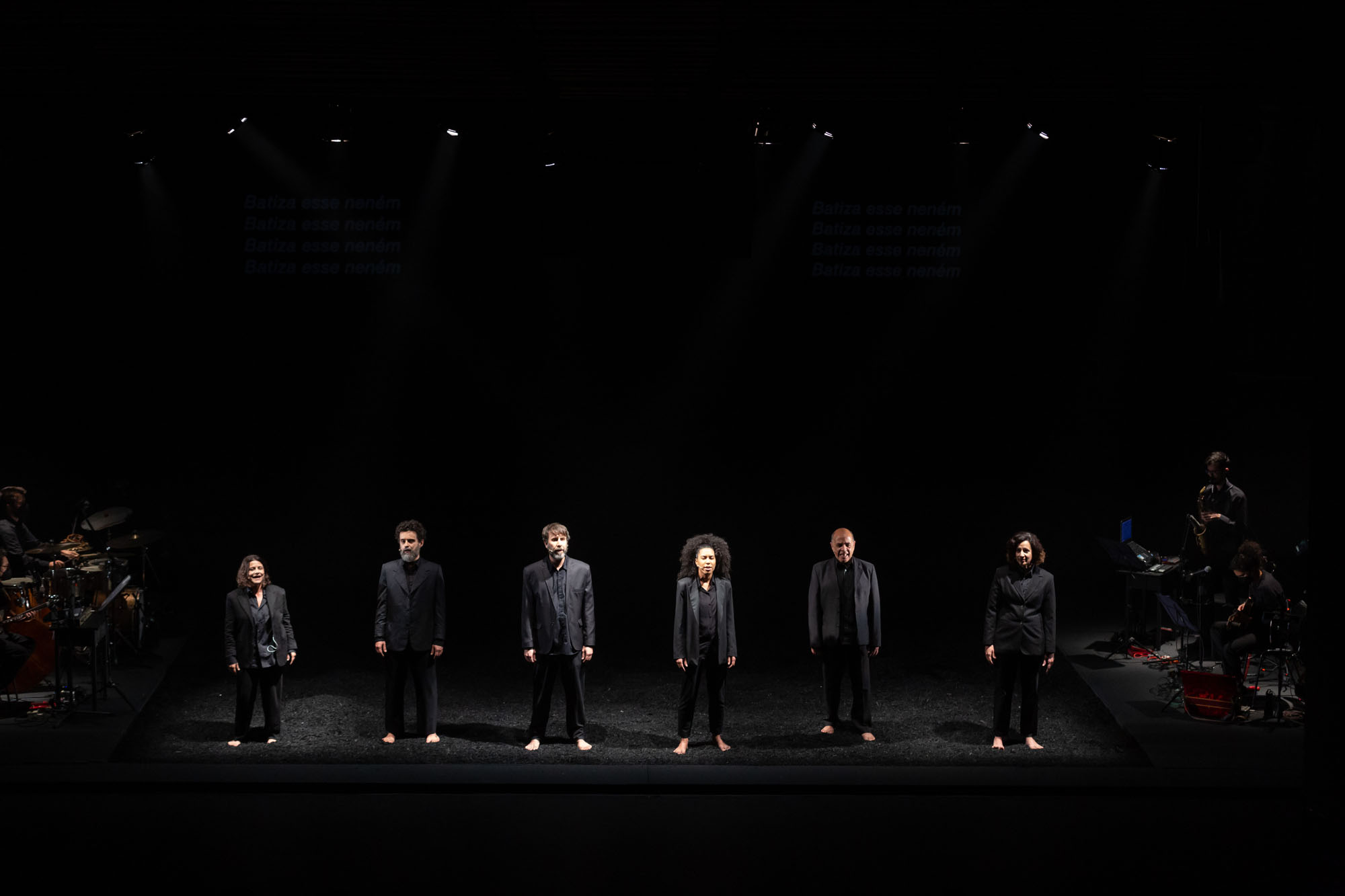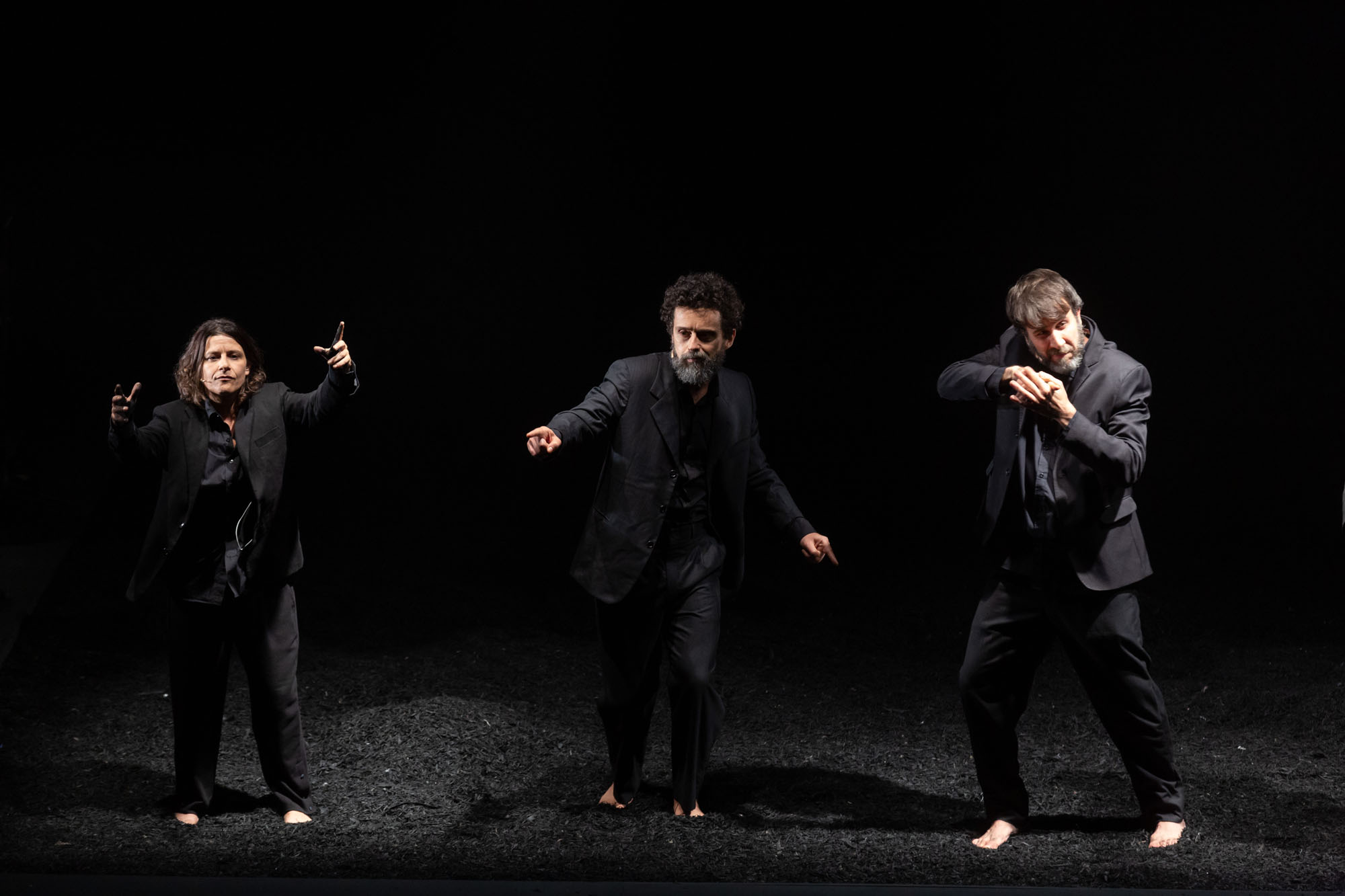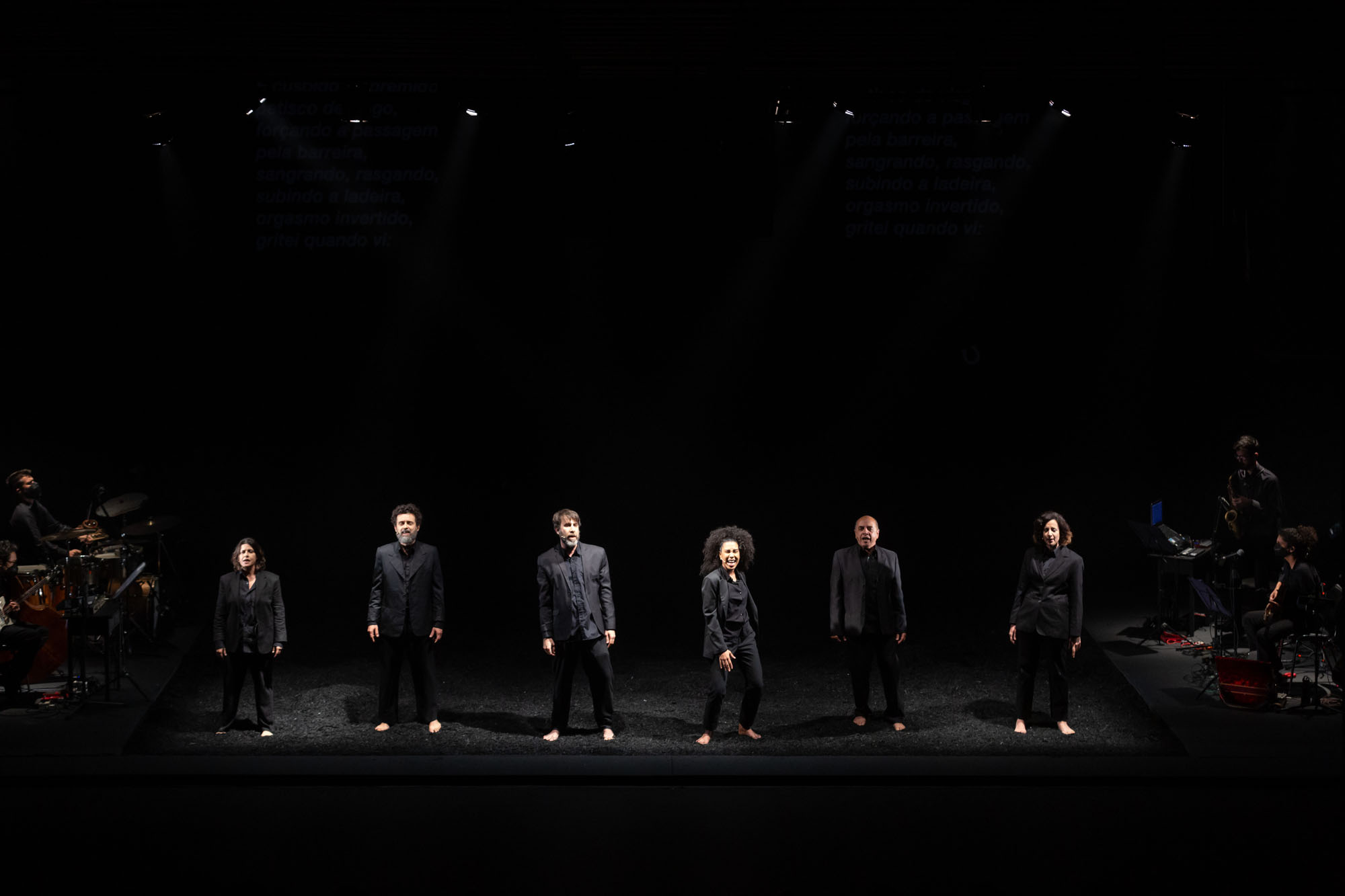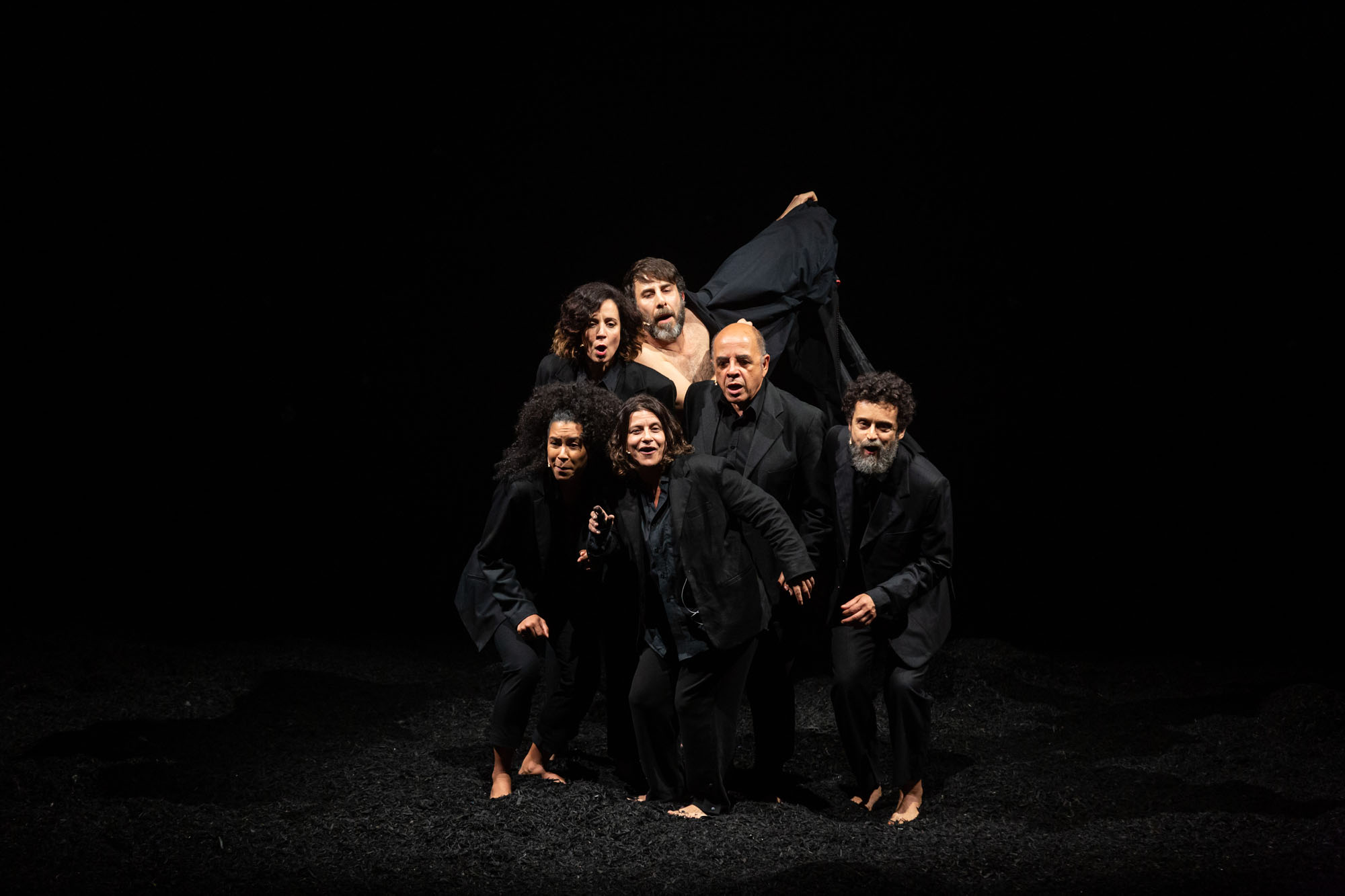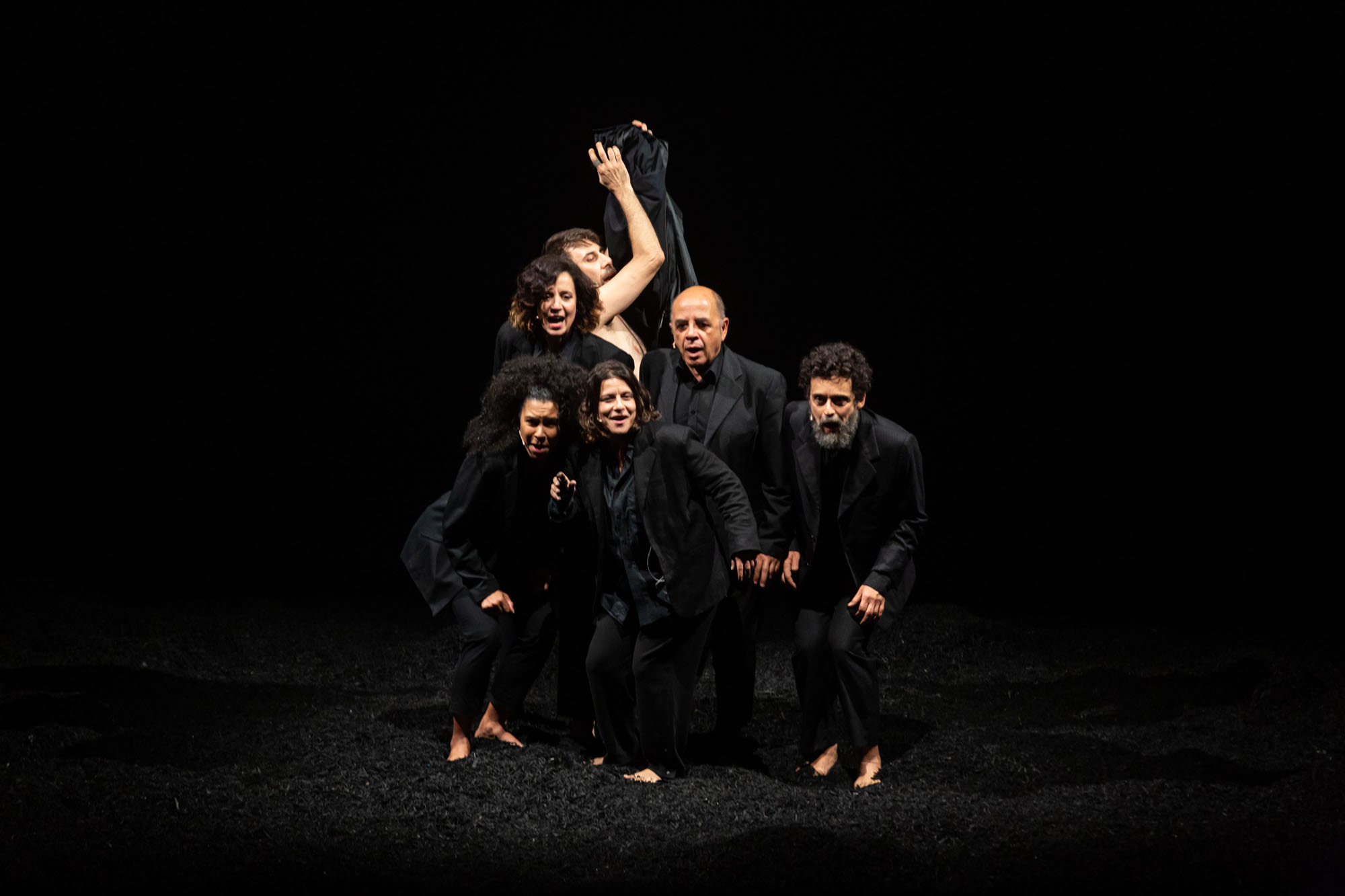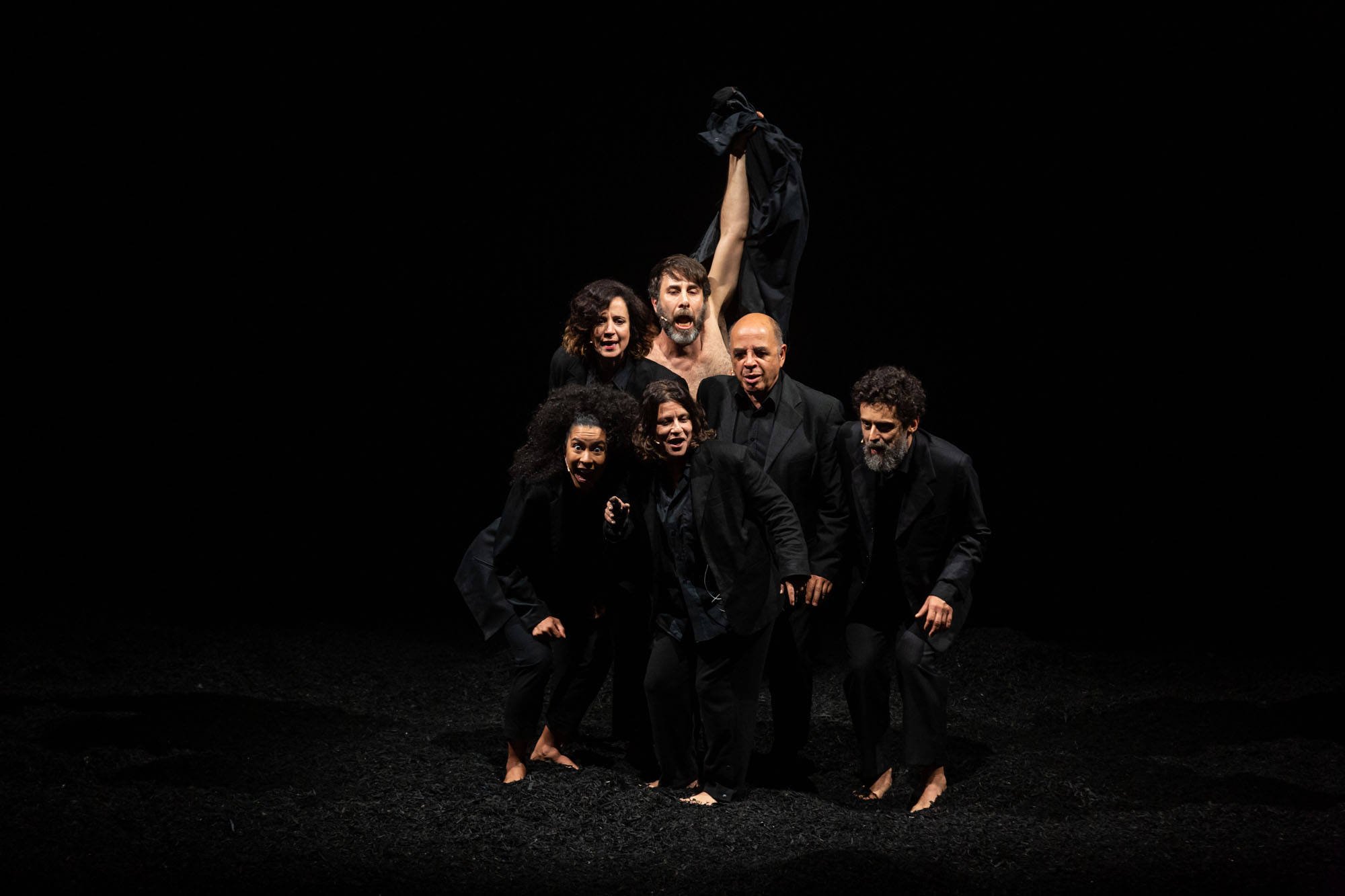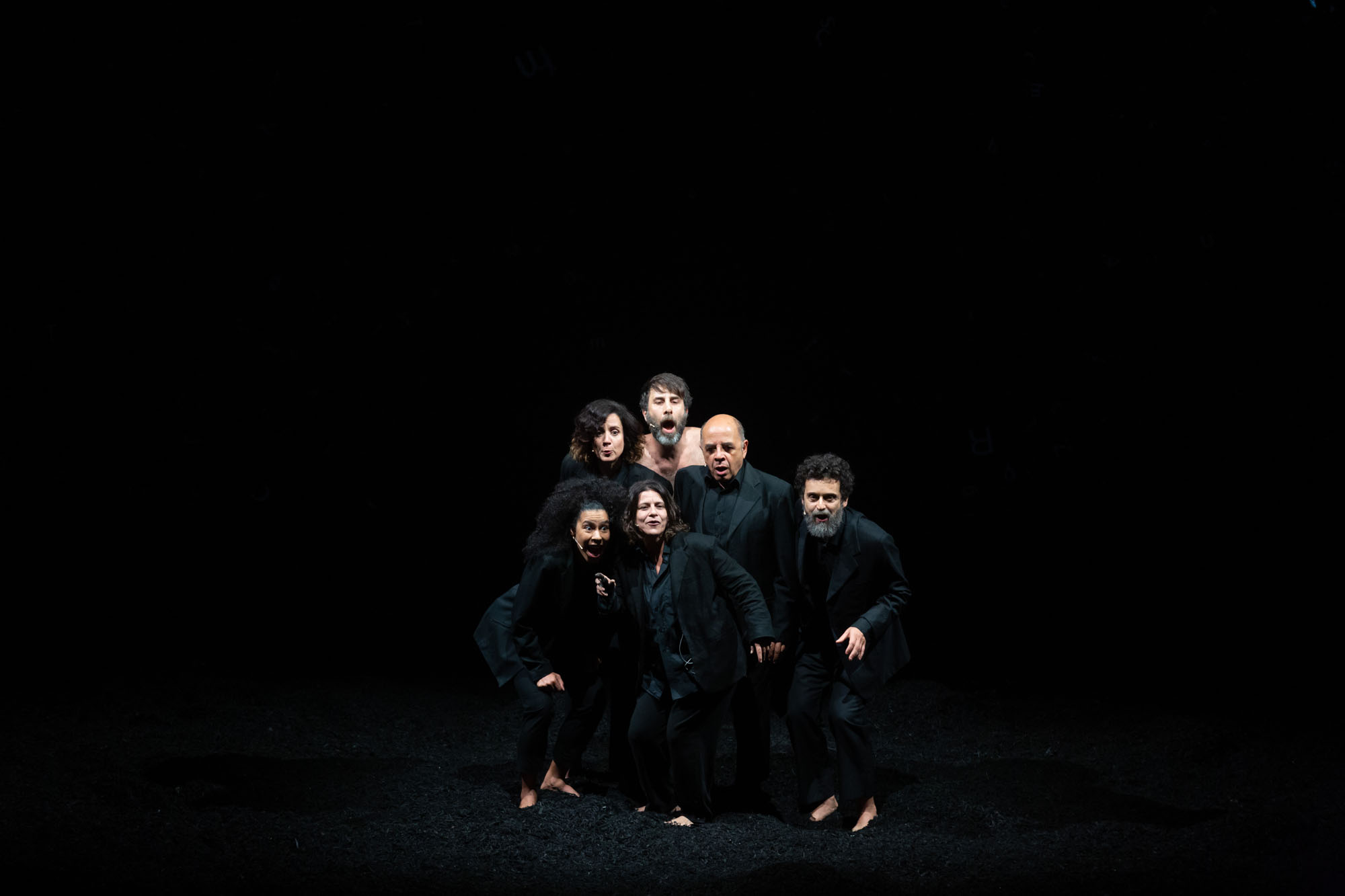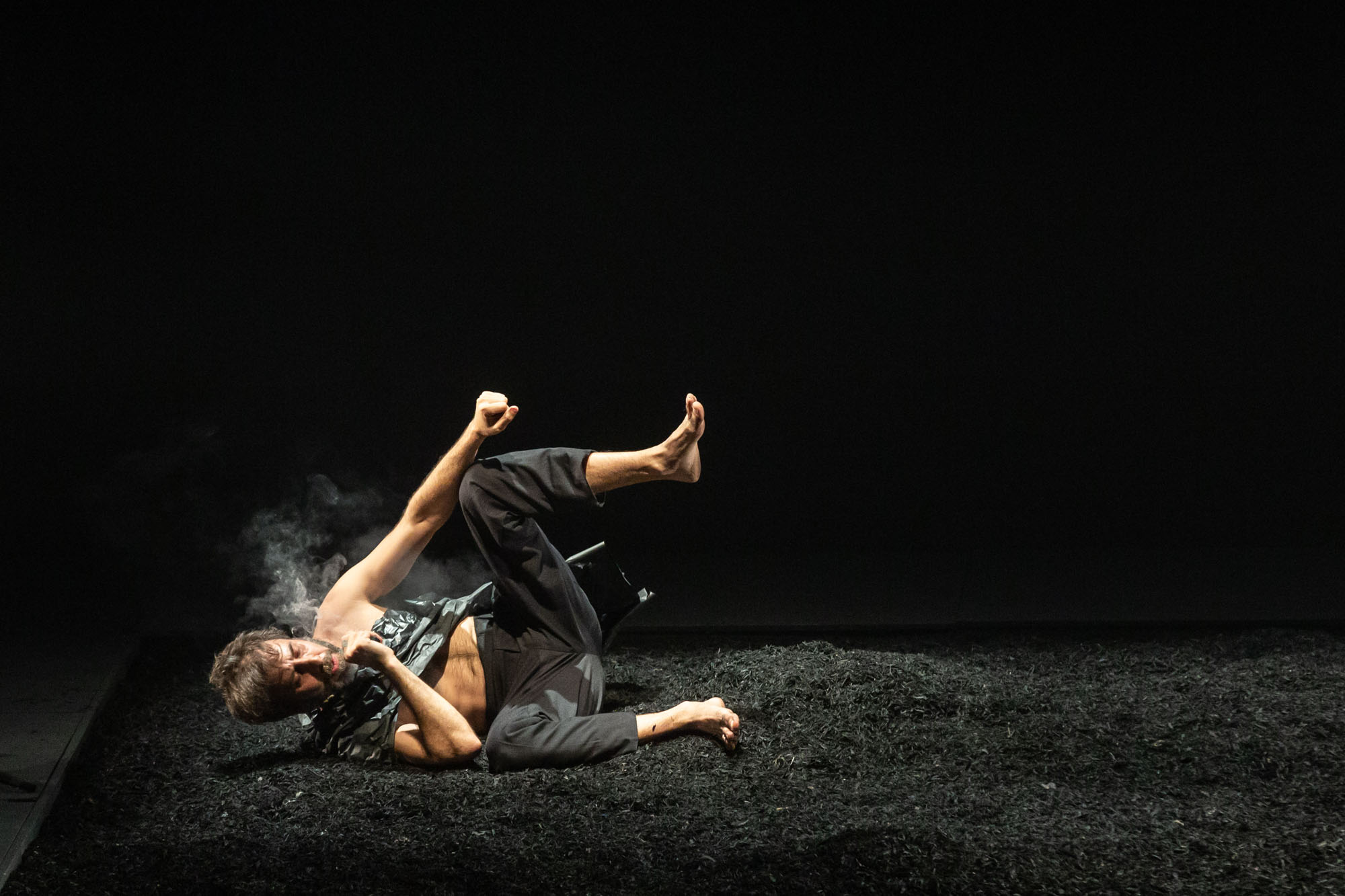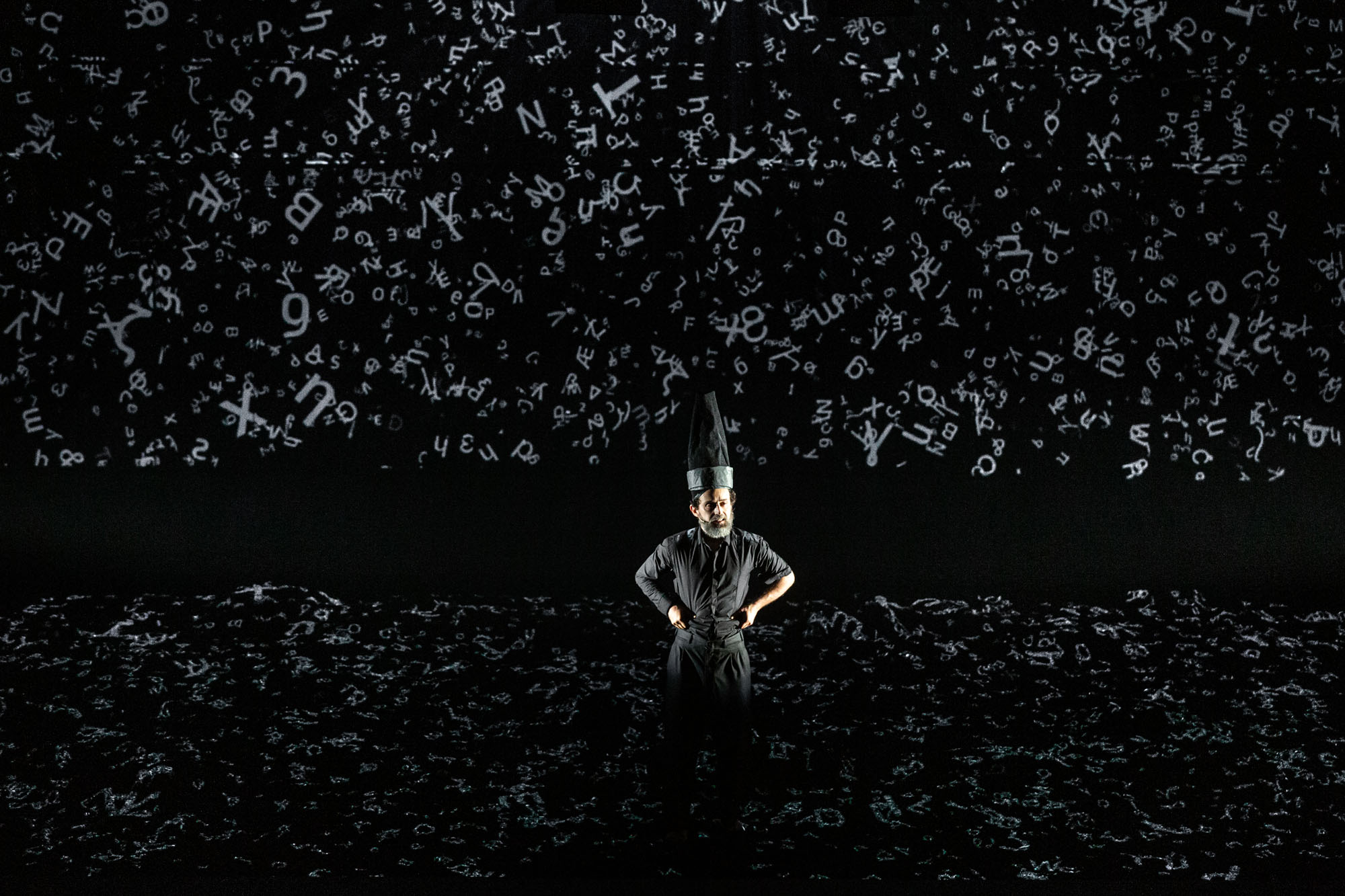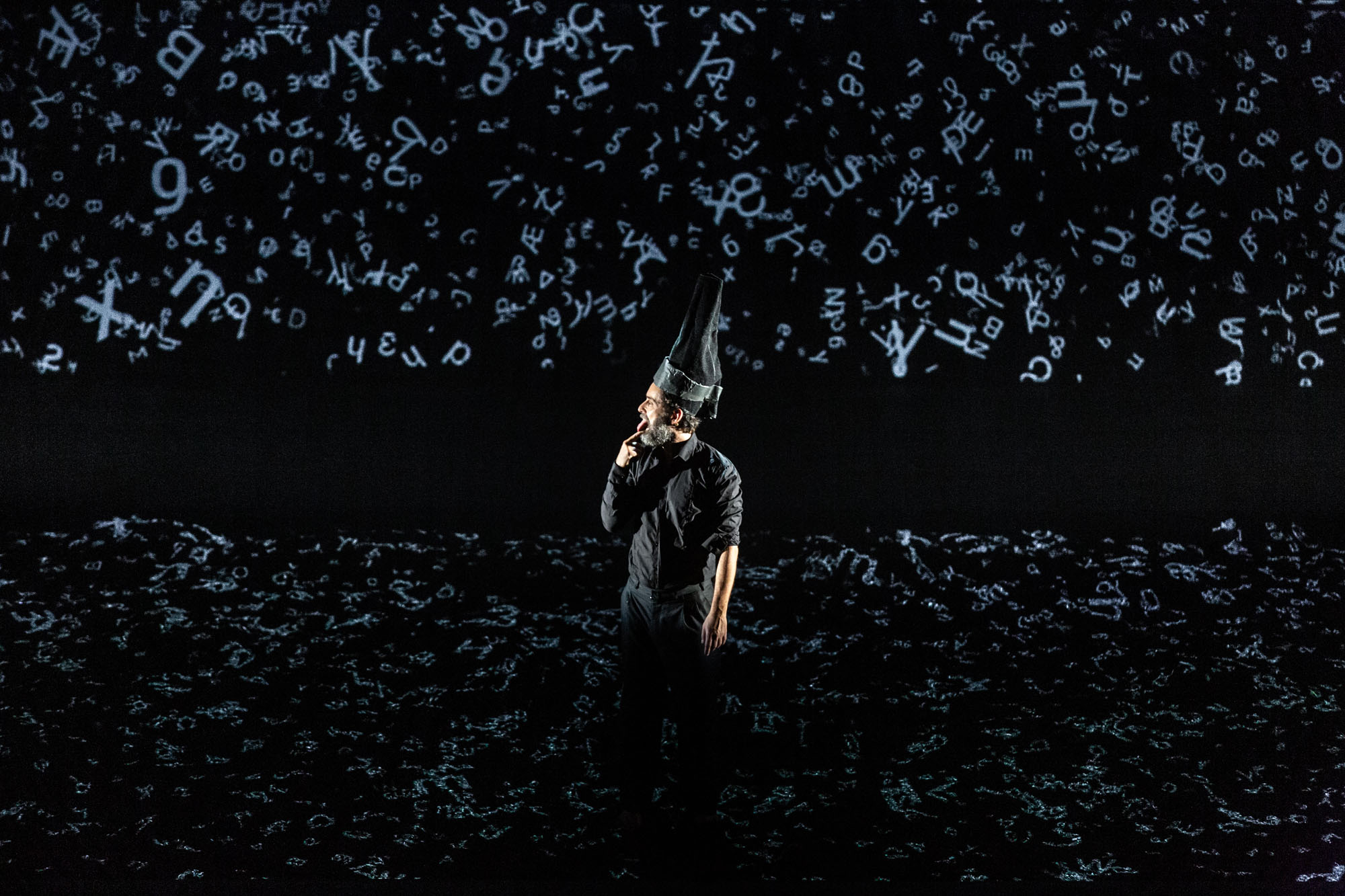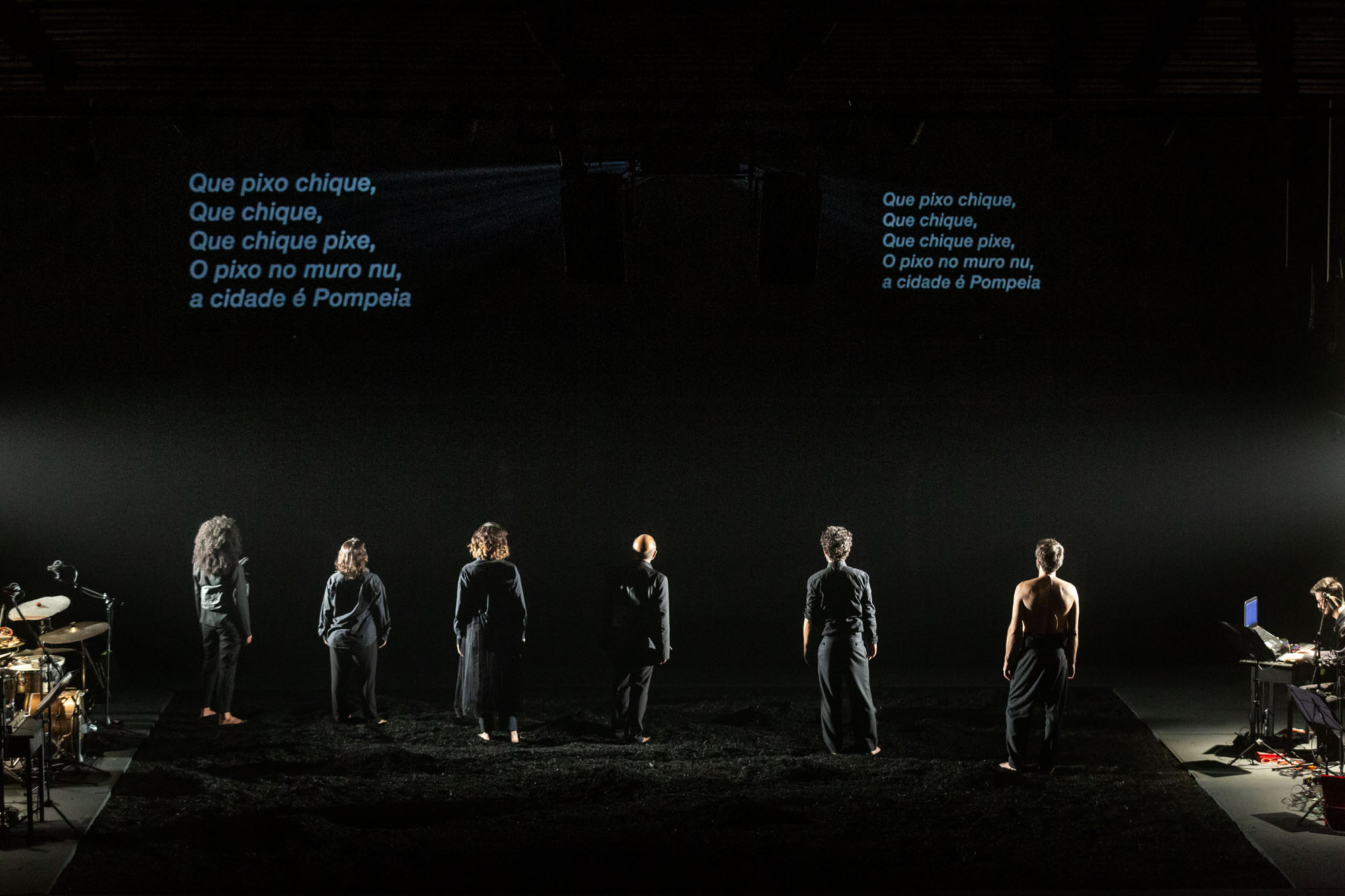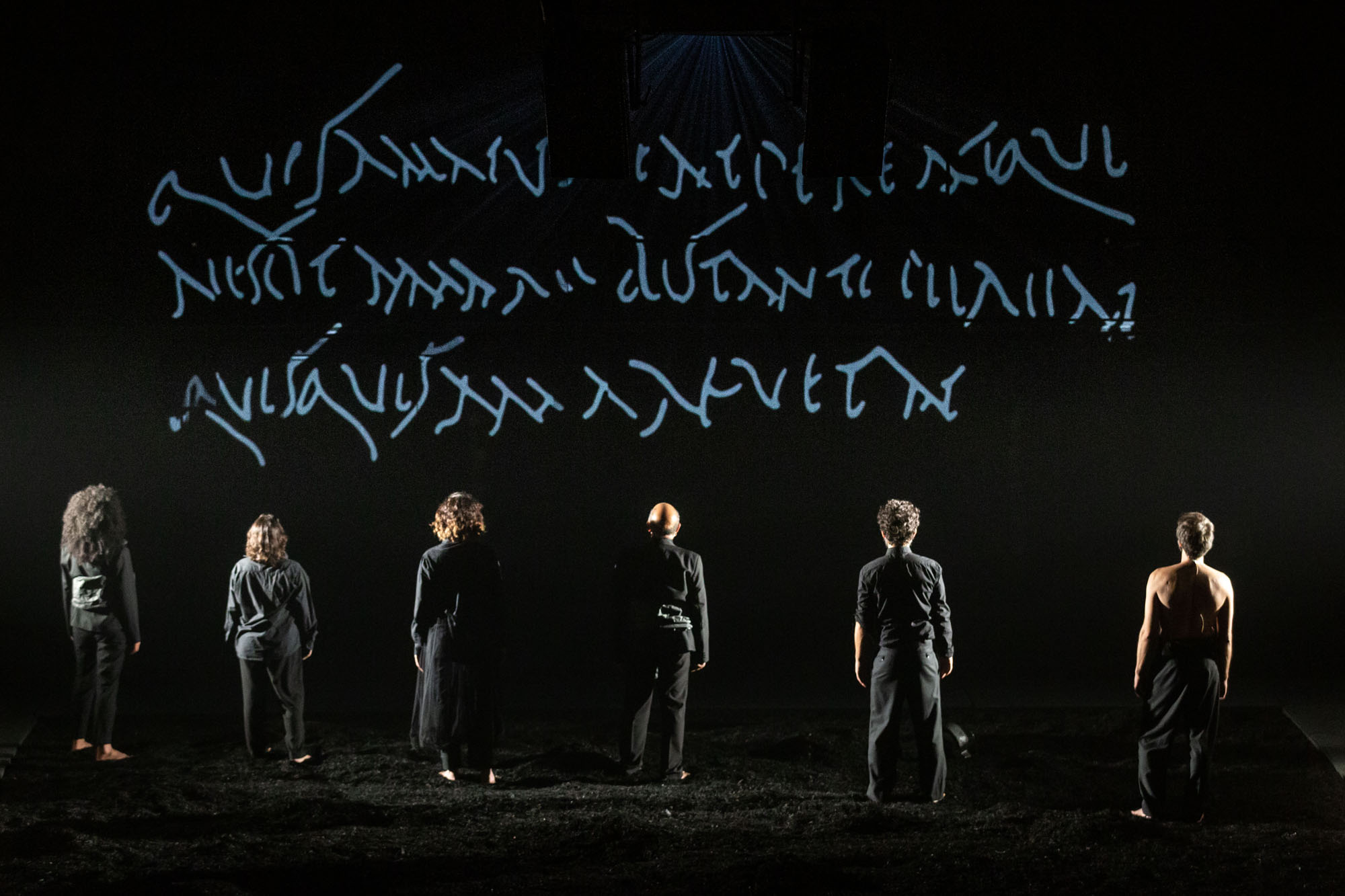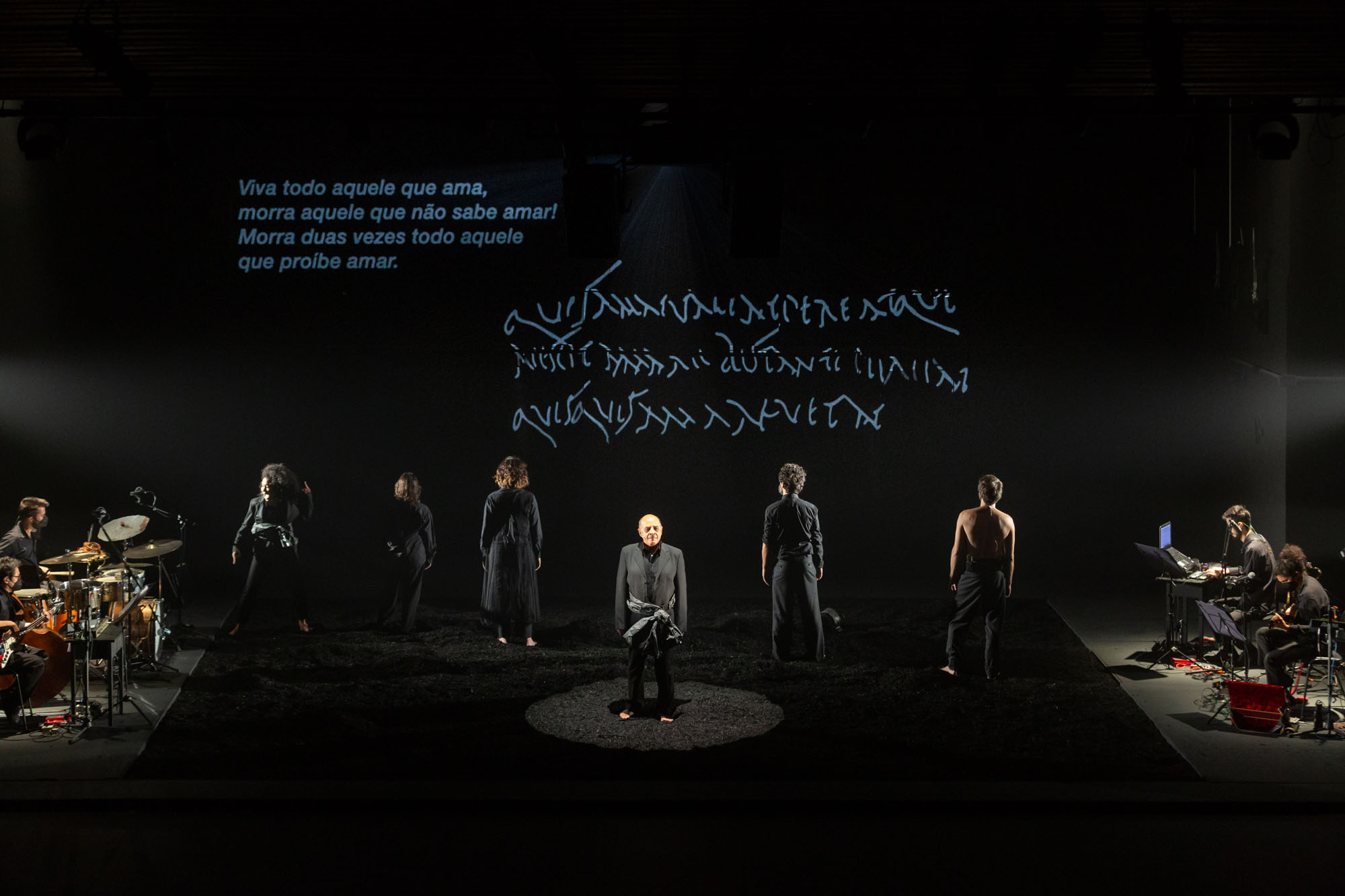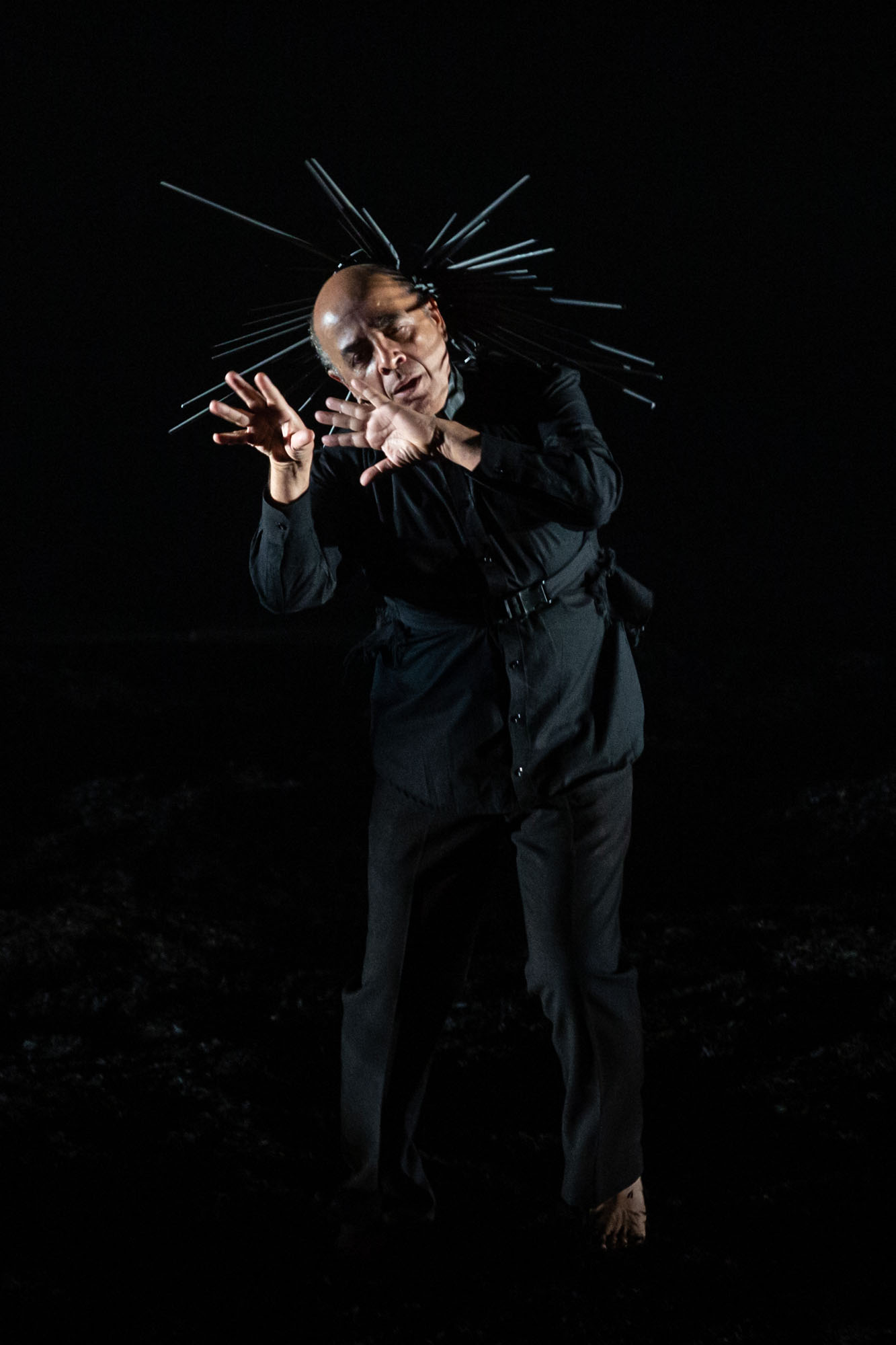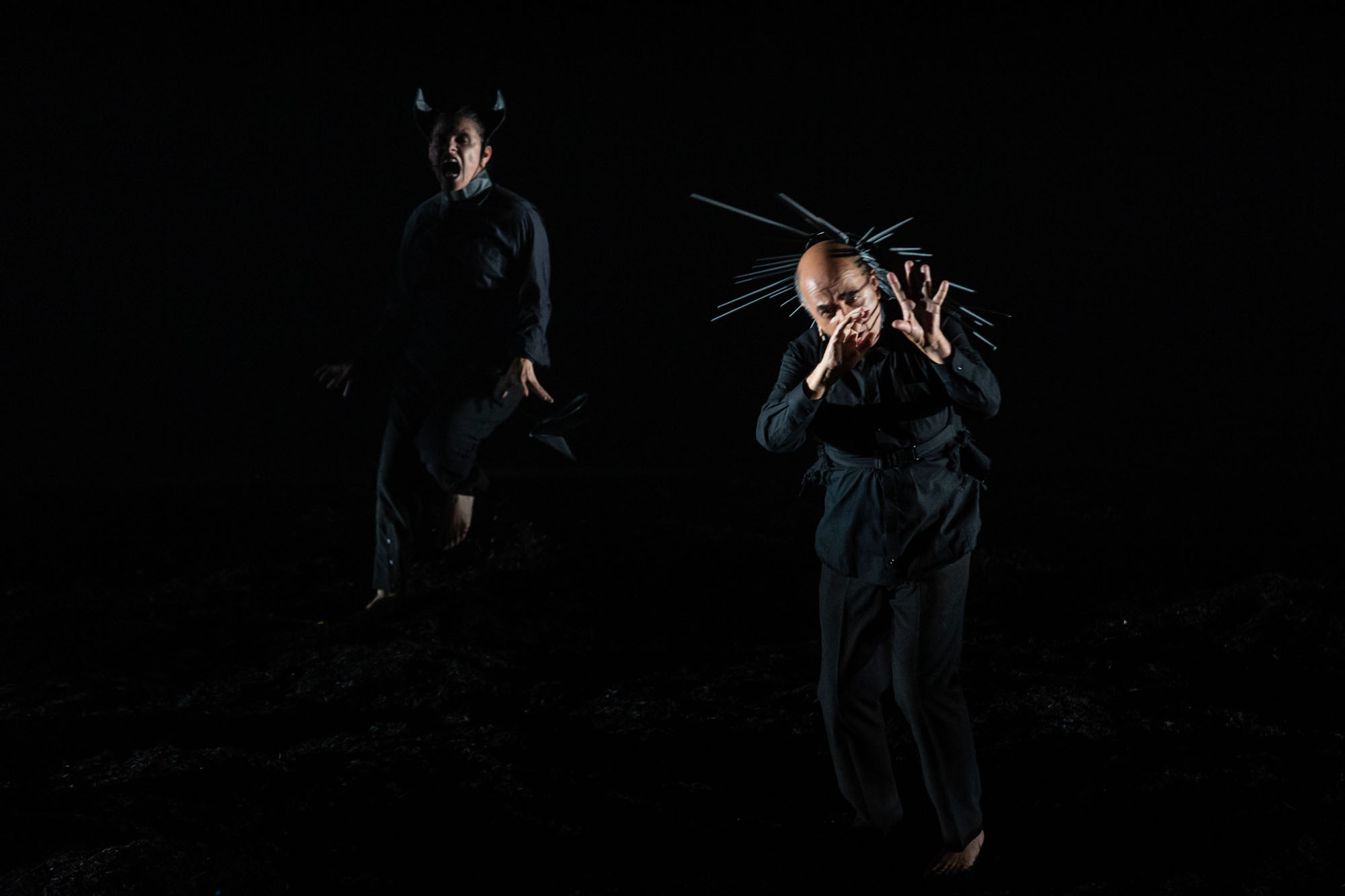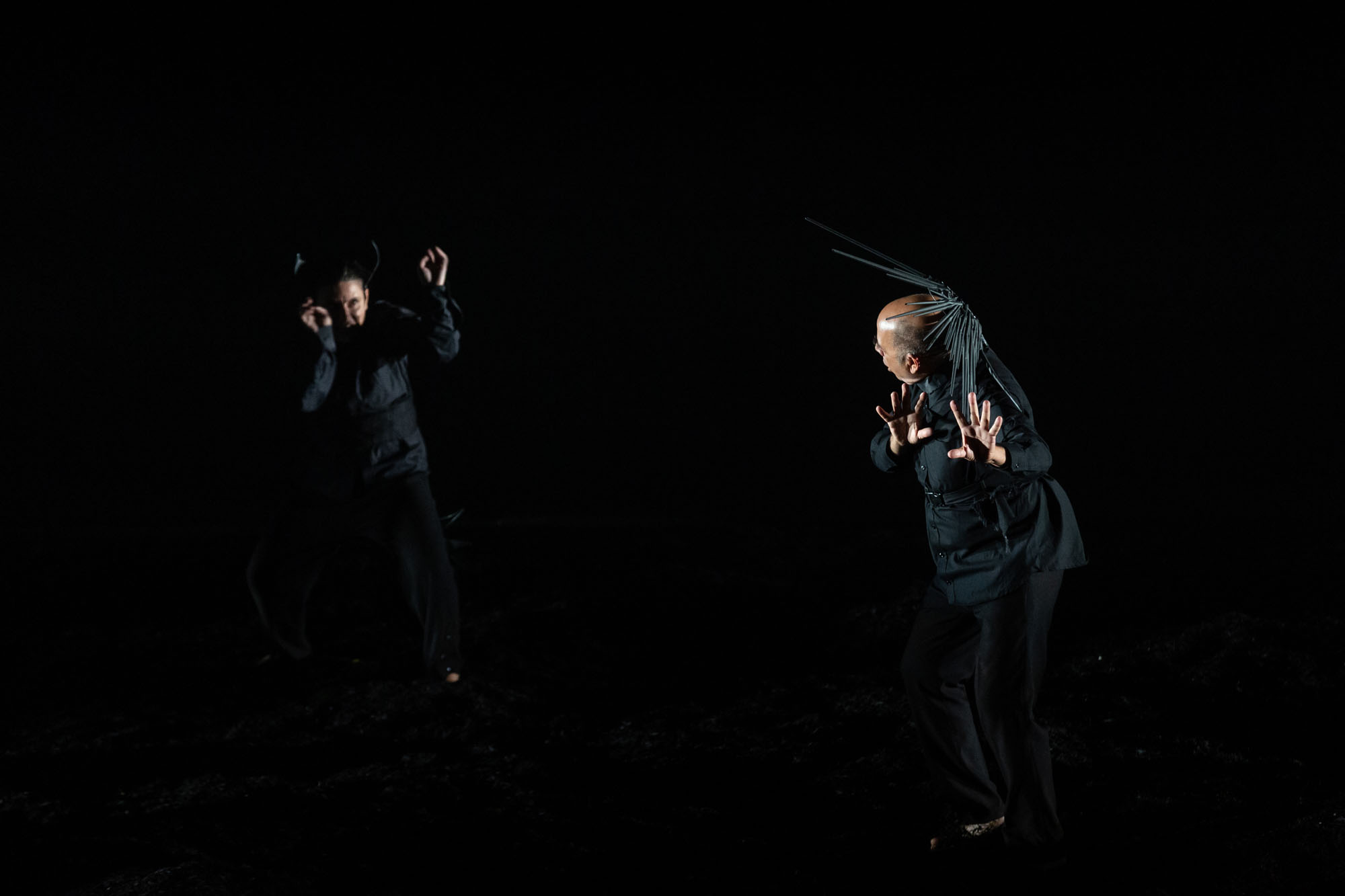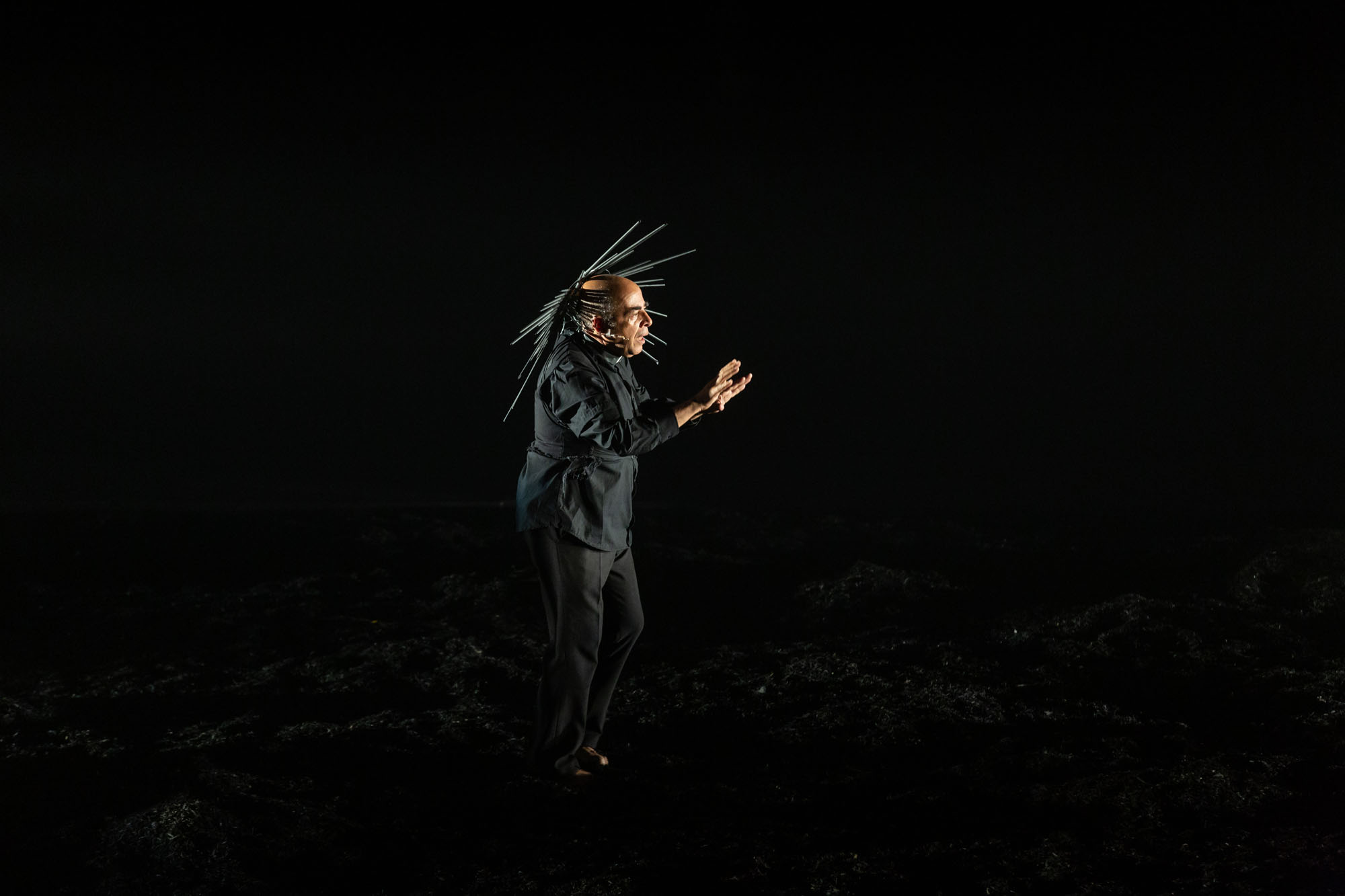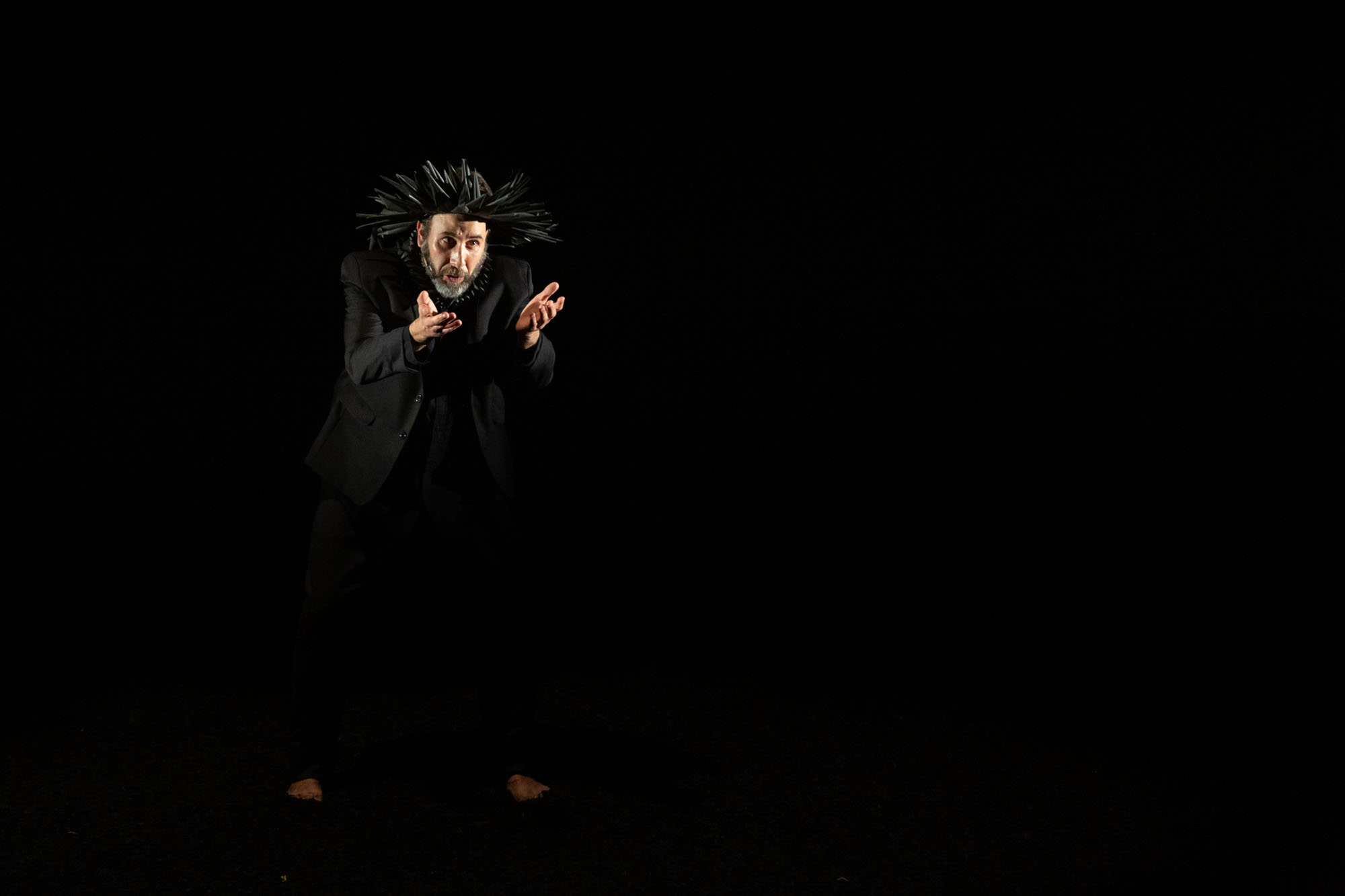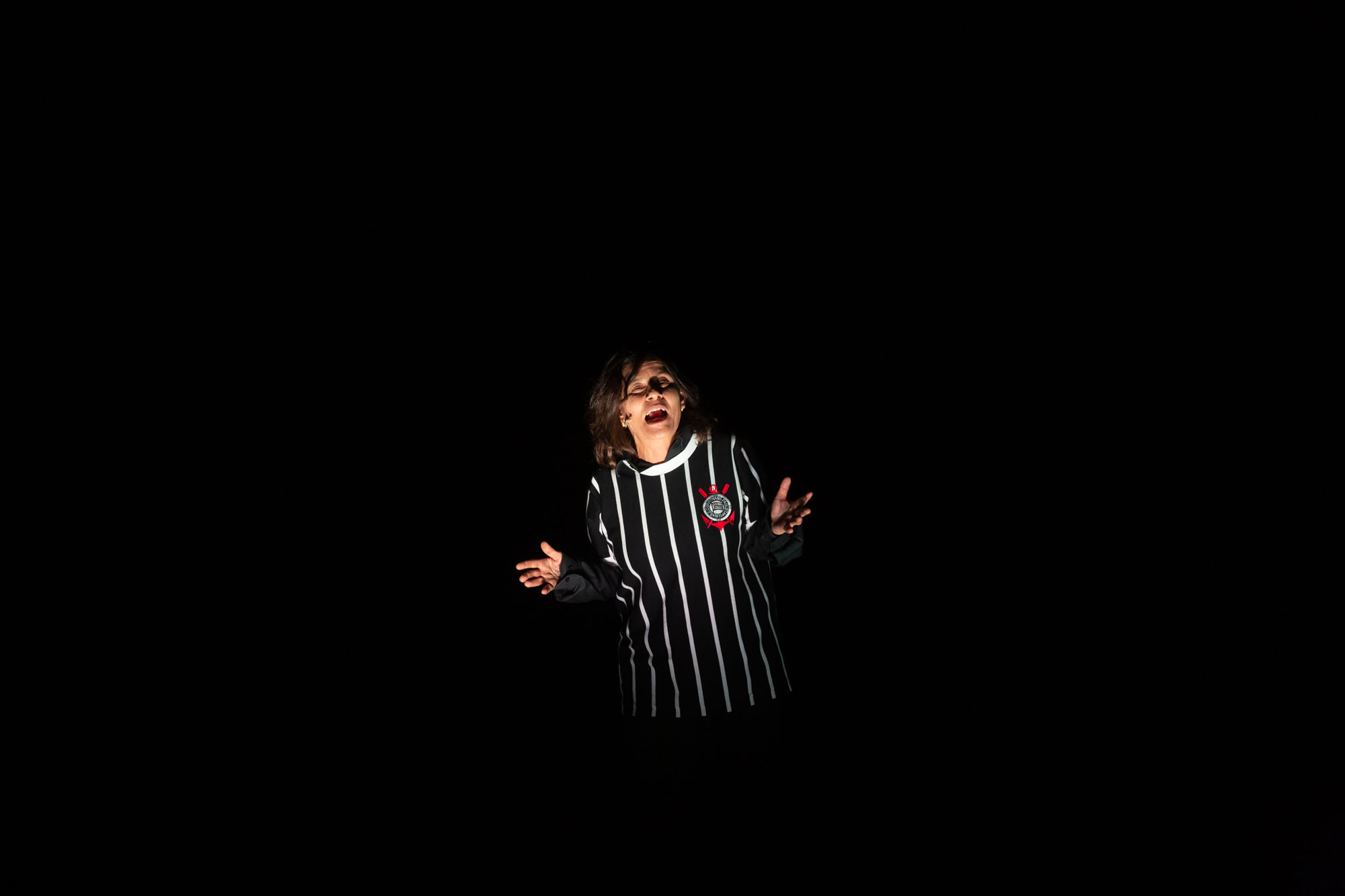Theatre
Brazil
16 years
180'
In the conversation between director Felipe Hirsch and Tom Zé, published on the program, the Bahian singer-songwriter tells one of his tasty stories: “It is said that at the age of two is the phase that you learn the most in life. You never learn again like you learn at two; what a crazy thing! You don’t speak the language of the tribe, and you’re learning?! I mean, there are languages that are languages… There are languages that God… Love, for example, what language is that?” he laughs.
Four pages later, the 85-year-old artist says that when you get old, “there are some things that fade away, but in the passion I have for this play, I became a child again!”. And crowns lines ahead: “It’s a glory of my old age.”
Created from the homonymous song from the album “Imprensa Cantada” (2003), “Língua Brasileira” features unpublished songs by Tom Zé under the dramaturgy of Coletivo Ultralíricos, Hirsch, Juuar and Vinícius Calderoni.
Six performers and four musicians show the epic of the peoples who formed the Portuguese spoken in Brazil, their myths and cosmogonies, passing through remote Iberian origins, through Romans, Barbarians and Arabs, Africa, and Native America.
The stagecraft walks through the unconscious of our language, its beauties and tragedies, its “splendor and grave,” a paradox present in a verse of the poem by Olavo Bilac (1865-1918) that bears the same name as the show.
According to Hirsch, the country currently has almost 200 endangered languages, more than a dozen of which are spoken by a few, three, or four original people. “And yet, Brazil is learning to understand a little of this, of the splendor of the mixture of this language and the grave. He says this perpetuation of slavery, the extermination of native indigenous peoples, and several languages consumed by this,” stating that this is not a didactic play, nor a thesis, but poetic.
Scheduled to premiere in March 2020 and postponed seven days before the date due to the pandemic, the season ran from January to March 2022, at Teatro Sesc Anchieta, in the capital.
Who are they
In 2013, coletivo Ultralíricos took shape with the “Puzzle” project in three parts, (a), (b), and (c), created for the Brazilian participation in the Frankfurt Book Fair. The following year, the fourth part of the series, (d), opens the Mirada edition. “A Tragédia e Comédia Latino-Americana” (2015), in two parts, and “Selvageria” (2017) make up the Involuntary Trilogy, a dive into Latin American literature. In 2019, it was the turn of “FIM,” text by the Argentine Rafael Spregelburd. “Língua Brasileira” (2022), in turn, deepens investigations on national issues..
Datasheet
A play by Ultralíricos and Tom Zé
General direction Felipe Hirsch
Music and lyrics Tom Zé
Casting Amanda Lyra, Danilo Grangheia (Gui Calzavara), Georgette Fadel, Josi Lopes, Pascoal da Conceição e Rodrigo Bolzan
Musical direction Maria Beraldo
Musicians Biel Basile, Fernando Sagawa, Ivan Gomes e Luiza Brina
Musicians (in alternation) Gustavo Sato, Cuca Ferreira, Gabriel Basile e Daniel Conceição
Assistant director Juuar
Dramaturgy Ultralíricos, Felipe Hirsch, Juuar e Vinícius Calderoni
Dramaturgy/general consultant Caetano Galindo
Art direction Daniela Thomas e Felipe Tassara
Lighting Beto Bruel
Costumes Cássio Brasil
Sound design Tocko Michelazzo
Vocal preparation Yantó
Video design Henrique Martins
International distribution Ricardo Frayha
Production direction Luís Henrique Luque Daltrozo




